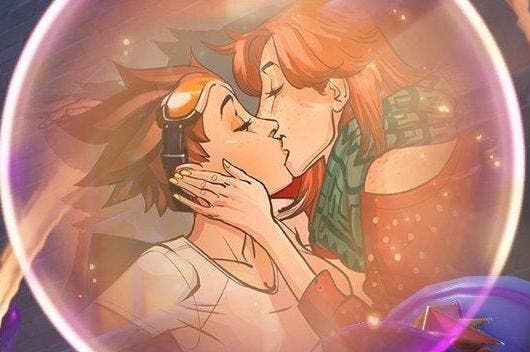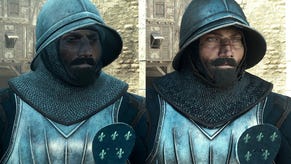2016: A year in review
Recommended.
2016 was a strange year for video games. Recent memory is dominated by a handful of high quality blockbusters that failed to excite people. But let's not forget earlier this year, when a handful of superb blockbusters definitely did excite people. And I'm not just talking about Street Fighter, either (don't @ me).
In researching 2016, I was surprised to find it jam-packed with video game stuff. Lots of things happened. Lots of people left developers. Lots of people joined developers. Some developers closed down. Some developers sprang into life. Lots and lots and lots of video games came out, mostly on Valve's ever-bulging Steam. Most were crap. Some were good. But in the pursuit of some kind of meaning, some kind of trend, I was left frustrated. Video games continue to be very good, even though 2016, at its close, feels a little less groundbreaking than I'd liked it to have been.
January, typically a quiet month for video games, saw a number of high-profile developers move on. Marc Laidlaw, lead writer of the Half-Life series, retired from Valve. The move was seen as further evidence, not that it's needed at this point, that Half-Life 3 is just not happening. Then we learnt Leslie Benzies, long-time leader of Grand Theft Auto developer Rockstar North, had left the company after a 16-month sabbatical. He later sued Take-Two for $150m in a move that's already aired a basket full of dirty laundry. Will the parties settle? I kind of hope not.
The high-profile exits continued: David Gaider, lead writer of Dragon Age, left BioWare after 17 years. And then Bungie announced that Pete Parsons had replaced Harold Ryan as the company's president - a suggestion, perhaps, that the gargantuan developer of Destiny had suffered a difficult 2015 and change was afoot.
Amid the high-profile departures, a high-profile arrival years in the making. Eurogamer editor Oli Welsh loved The Witness, declaring it "big, beautiful and rewarding". Jonathan Blow's brilliant puzzle game got 2016 off to a wonderful start. In many ways, it was downhill from there.
Street Fighter 5, a game that frustrated the hell out of me because the brilliance of its gameplay was lost in the din caused by its catastrophic launch, came out in February. Capcom only had itself to blame, of course, and it's still battling to get Street Fighter 5 to where it needs to be to be considered a success (the developers took 10 months to put in a proper anti-rage quit system). It was the first of a number of 2016 video game launches that would go less than smoothly.
Still, I've had a huge amount of fun with it, and I've been glued to the Capcom Pro Tour all year, watching the likes of Daigo "The Beast" Umehara get to grips with its mechanics, and put them into practice in tournaments streamed on Twitch. Street Fighter 5 may have failed to set tills alight, but it certainly got the hardcore going.
March kicked off 2016 video game drama time. First up, Microsoft announced its intention to close down Lionhead, the legendary Guildford developer behind the Fable series. Not only that, it cancelled Fable Legends, an online multiplayer-focused Fable spin-off that had been in development for years. The UK development scene was in shock. As Eurogamer reported later in the year in a feature titled Lionhead: The inside story, it was a sad end to an influential, sometimes tumultuous but always ferociously creative studio. Founder Peter Molyneux, still reeling from the fallout to the Godus debacle, quietly released his next game, The Trail, later in the year. It turns out it's not bad.
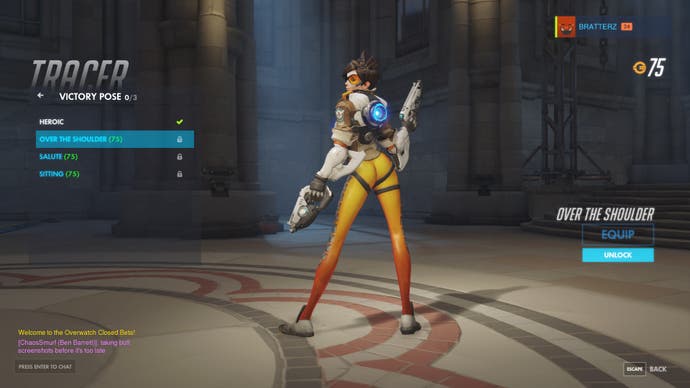
Later in March, Sony shut down Driveclub developer Evolution, just as it turned around the PS4-exclusive racing game. Amid concern about the health of the UK video game industry, Codemasters picked up much what remained of the staff, and set them to work on a new racing game we're looking forward to playing. But the worry is real: many video game developers spent 2016 struggling to stay alive as the audience for games fractured ever more. It's a tough business.
Also in drama-related video game news, March saw Blizzard announce plans to change an Overwatch pose accused of reducing Tracer to "another bland female sex symbol". The pose focused attention on Tracer's butt, and Overwatch game director Jeff Kaplan said the development team simply wasn't cool with it. "The last thing we want to do is make someone feel uncomfortable, under-appreciated or misrepresented," said Kaplan. "Apologies and we'll continue to try to do better."
The announcement sparked a vociferous debate within the already huge Overwatch community, and, let's be honest, a lot of what was said was pretty disappointing. But the upshot was net positive for Tracer and for the game. In many ways, 2016 was the year of Tracer, the face of Overwatch, the hottest game of the year. She'd go on to hit the headlines once again, half a year later.
In new video game release land, March saw Ubisoft launch online third-person shooter RPG The Division. It's fair to say that while The Division sold a huge number of copies, and Martin certainly found the good in it, the game failed to keep players interested for more than a month or so. The most interesting thing about it for me was reporting on players queuing up to use an in-game laptop, which I'm still laughing about.
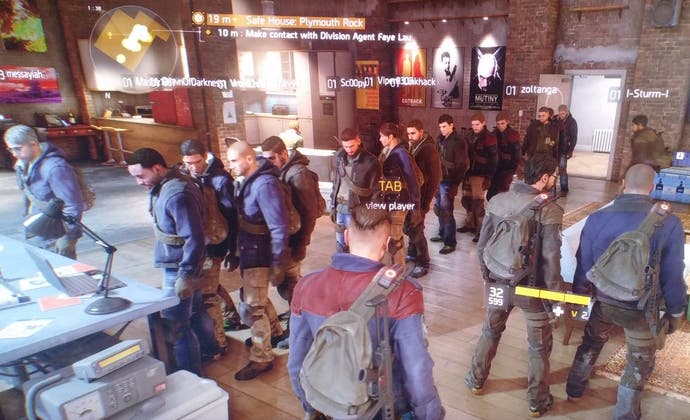
It wasn't until later in the year that Ubisoft started to attract players back into the fold with a cool new mode. But the damage had been done: players entered The Division with high expectations, and left soon after disappointed. Not a fantastic start for triple-A in 2016.
April, another typically quiet month for video games, saw Microsoft announce the discontinuation of the Xbox 360. Jon Hicks, ex-boss of Official Xbox Magazine and current Gamer Network audience development chief jotted down his thoughts on the groundbreaking console's decade of success. Throughout 2016, its follow-up, the Xbox One, continued its struggle to keep pace with the runaway PlayStation 4. Current-gen gaming, for Microsoft, was more about Xbox Live engagement and similarly abstract metrics, or, "the kinds of things you talk about when you're in second place". As early 2016 inched forward, I got the impression Microsoft had turned its attention to the Xbox One Slim, which, in fairness, has been a roaring success.
Speaking of Xbox One, Microsoft released Quantum Break in April. It just kind of came and went, didn't it? Martin called it "slick yet hollow" in the Eurogamer review, and that's about the long and short of Remedy's action adventure, another Xbox exclusive that failed to break out. What's the studio up to next? It's got a couple of projects on the go, neither of which is Alan Wake 2.
One game that we very much did enjoy was Dark Souls 3, what looks like the final Souls game for at least a long while. Rich Stanton called it "a spectacular conclusion to From Software's trilogy" in the Eurogamer review. The world waits with bated breath for superstar designer Hidetaka Miyazaki's next.
May saw Gearbox's Battleborn go up against Blizzard's Overwatch in what we'd billed as the war of the team-based hero shooters, or whatever it was Randy Pitchford said Battleborn was. In truth the outcome was never in doubt. In the UK, Battleborn came out on the same day Overwatch launched its open beta. The mere whiff of Overwatch obliterated Gearbox's effort like the Death Star snuffing out an inconsequential moon. It was overkill, and in many ways tough luck on Battleborn, a good game the few who play it very much enjoy. But Overwatch launched big and it got bigger with each update (okay, I admit it: I may have been wrong to suggest Overwatch was a summer fad). Many of my colleagues play it over lunch each and every day. They bark baffling instructions to each other, such as "move the payload" and "kill that bastard Bastion". I have observed that no-one seems to enjoy playing Overwatch, and yet people keep doing it, regardless. Madness.
May would go on to cement itself as perhaps the best month of 2016 for video games. Naughty Dog's Uncharted 4 brought Nathan Drake's adventuring to a suitably satisfying close. It was Uncharted "going out on an absolute high", Oli said in the Eurogamer review. Later in the year, Naughty Dog would announce The Last of Us 2, a game we can't wait to play even if we're not sure its predecessor needed a sequel.
Many had expressed concern, myself included, about id Software's Doom after the multiplayer beta went down like a lead balloon, but the brilliantly old-school single-player campaign surprised us all. Edwin called Doom a "remarkable comeback" for id in the Eurogamer review. The campaign sparked a trend for actually good single-player FPS campaigns that would continue throughout 2016.
And Creative Assembly's Total War: Warhammer (I'm still cross they didn't call it Total Warhammer) rounded out May nicely with a superb strategy crossover. The game launched smooth, ran well and wowed fans of both universes. Our resident Strategy King Chris Bratt called it a "godly blend of franchises" in the Eurogamer review. Over half a year later, Total War: Warhammer is still played by thousands every day on Steam. Well done, everyone!
Ah, June. E3 time. I thought it was a lot about setting up 2017 and beyond, rather than unveil cool new games. Sony had already announced the PS4 Pro, but for some reason decided against showing it off. Microsoft announced Project Scorpio with a video packed with developers talking about how much they're looking forward to it. The upshot is that 4K gaming, which seems to be the point of this mid-generational refresh, felt a little distant, as if a point on an ultra high resolution horizon. Nintendo, refusing to play ball, waved the Master Sword and braced itself behind a Hyrule Shield as it doubled down on the Wii U version of the next The Legend of Zelda. What NX? Nintendo's always weathered change by largely ignoring it. This time it ignored its own console.
Publishers don't tend to release big games in June because of E3 and it's the summer so everyone's on holiday, but we got a couple of noteworthy releases. Mighty No. 9 came out and pretty much everyone was upset with it. Was it another Kickstarter scam? Or was it just a bit crap? "Mighty No. 9's moments of brilliance are tempered by its preposterous challenge," Simon Parkin wrote in the Eurogamer review. Still, video game Kickstarters didn't seem to have a great time of it in 2016. Gamers, it seems, are now clued up.
Perhaps the biggest video game drama of 2016 revolved around YouTube stars who were exposed as having links to gambling websites. YouTubers Trevor "TmarTn" Martin and Tom "Syndicate" Cassell were accused of knowingly misleading viewers by promoting a gambling site they in fact owned, and encouraged others to spend money on it after showcasing themselves apparently winning thousands of dollars worth of items in minutes.
Despite an initial burst of outrage, it seems the reputations of both TmarTn and Syndicate survived. They continue to enjoy millions of subscribers and video views, the dark days of summer 2016 an occasional niggle in the comments. For me, the most disappointing thing about the whole episode was these guys' biggest fans, in many cases children or young teenagers, were encouraged to gamble in the first place. Thankfully, the UK Gambling Commission at least appears to be on the case.
And then Pokémon Go came out in July and the world felt okay again. Pokémon Go was more than a mobile hit. It was a pop culture phenomenon, a moment, a video game that was all around you, inside, outside, and in some cases, into the fucking sea. For those not into it, like me, it was a disaster. Every few hours someone here would shout something about a Raichu and as I'd mouth "bless you" the entire office would leap out of their chairs and into the Brighton sun. Sometimes I wished they'd never come back.
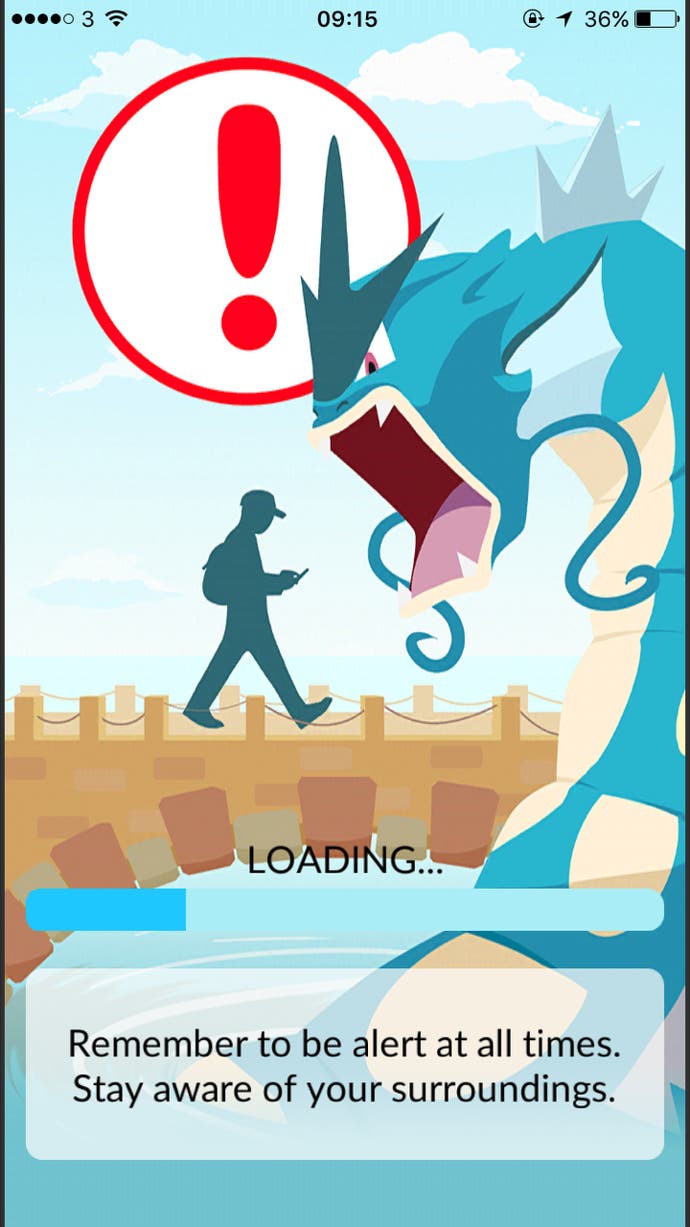
Surely, it was the summer of Pokémon Go. Forget the Olympics. Forget the sodding Euros. Summer 2016 was all about Pikachu and catching 'em all. Developer Niantic, like a rabbit in the headlights, struggled to cope with it all, and subsequently admitted it made mistakes. People reckon the Pokémon Go fad is over, but it's not. It's still massive, just a little less so. It turns out the game's players have walked a collective 8.7bn kilometres while on the hunt for Pokémon . That equates to around 200,000 trips around the Earth. Pokémon fans are nothing if not determined.
What did we learn? We learnt a lot of people carried a latent love of Pokémon deep inside of them. We learnt free to download games have the potential to be bigger than all other types of games. And we learnt that 2017 is probably going to see the release of a thousand Pokémon Go clones. I don't know about you, but I just can't wait for Ghostbusters Go. Get on it, developers.
The summer descended into chaos with the August release of No Man's Sky, a game so hotly anticipated, I wonder if some thought it might have cured cancer. With the No Man's Sky community in a frenzy, Kotaku writer Jason Schreier received death threats for daring to report the game's delay. When No Man's Sky came out and wasn't what people had hoped for, the video game shitstorm to end all video game shitstorms sparked into life. In all my years reporting on video games, I've never seen more anger directed at a video game developer than Hello Games suffered in the month following the launch of No Man's Sky. Sean Murray had made a number of mistakes as he hyped up his little indie game. (His comments in an interview about multiplayer, for example, seemed particularly ill-advised.) But did he deserve death threats? Does anyone in video games ever really deserve death threats?
I will say this, Murray's radio silence throughout the summer probably didn't help matters. A communicative developer isn't always an understood one, but No Man's Sky players could have done with a bit more than "we're fixing bugs". In the end, Hello Games released a pretty impressive update for the game. All is not forgiven, but it seems there is light at the end of No Man's Sky's procedurally-generated tunnel.
In September, Bungie released Destiny expansion Rise of Iron. I'm a massive fan of Destiny. Many of us at Eurogamer are. But this expansion burnt bright before quickly fading away. I got the gang back together: our Destiny clan, Des Tiny OMG, hit Rise of Iron as soon as it launched, and while we enjoyed the new raid, Rise of Iron was no The Taken King. Des Tiny OMG disbanded, its members cast adrift. Destiny 2, surely, will unite us once again - and this time, hopefully, for longer than a couple of weeks.
A quick word on Forza Horizon 3, because if I don't mention it I fear Martin Robinson will batter me to death with one of his video game steering wheels. By all accounts, it was a superb effort from developer Playground, a game that managed to excite pretty much all racing fans on Xbox. "Playground Games' series has never been a more triumphant standard-bearer for racing games as pure, escapist entertainment," Oli wrote in the Eurogamer review. Amid great uncertainty for UK video game developers, a welcome critical and commercial hit.
October, and the traditional Q4 video game rush began proper. Now, most of the games that came out in time for the Christmas rush were very good. Some were brilliant. But not all were exciting. Mafia 3? Good, medium excitement. Battlefield 1, very good, high excitement. Gears of War 4: very good, low excitement. Watch Dogs 2: very good, medium excitement. Titanfall 2: brilliant, low excitement. Dishonored 2: brilliant, medium excitement. Call of Duty: Infinite Warfare: good, pretty much zero excitement.
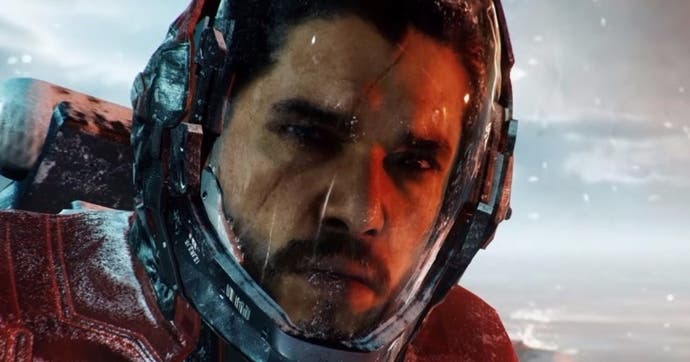
Call of Duty was fascinating this year. A lot of people really, really hated the fact it was set in space. Activision's decision to lock Modern Warfare Remastered behind the super expensive version of Infinite Warfare just made things worse. How did gamers respond? By mass downvoting Infinite Warfare trailers on YouTube. Activision waved away concern ahead of release, but the game tanked, well, it tanked for a Call of Duty game. Are the wheels finally coming off video game's once all-conquering FPS? 2017 is all of a sudden the most crucial year in the franchise's history. I can't wait to see how Activision reacts.
Nintendo announced the Switch in October. It was a huge news story, and confirmed Tom Phillips' July report that the home console handheld hybrid would feature detachable controllers. As more information emerged, and in a post Digital Foundry Switch specs reveal world, I found myself worrying for Nintendo's next console. But someone said something to me recently that made me think differently about Switch. A colleague pointed out that Switch will be perfect for his daughter, who asked for one for Christmas, because she'll be able to play games on it in the back of the car. "And I want her playing quality games, not crap," he said, "and with Nintendo games you can't go wrong."
Also in October, Tomb Raider turned 20. Chris Bratt and I had a lot of fun travelling up to Derby to speak to people about Lara Croft Way, the road named after gaming's most famous action hero. I also had a lot of fun telling the true story of the development of Core's Tomb Raider games. They don't make games like they used to, right? The more I hear about video game development in 2016, the more I reckon not much has changed at all.
PlayStation VR came out in October and it was supposed to show that VR gaming could be mainstream after Oculus Rift and HTC Vive failed to attract a significant audience. I'm a big VR skeptic, and while PSVR definitely felt like a bigger deal, it still sort of came and went. Blame the cost of entry. Blame the kind of experiences available right now. Blame the limitations of the tech. Blame whatever you want - 2016 was supposed to be the year VR made a splash, but instead it was more of a damp squib.
Bethesda stamped a full-stop on to October when it announced it wouldn't send review copies of its games to press until a day before they come out. "We want everyone, including those in the media, to experience our games at the same time," Bethesda said, seemingly unaware it had sent final code for Skyrim Remastered to many "influencers" weeks beforehand. It's fair to say we weren't big fans.
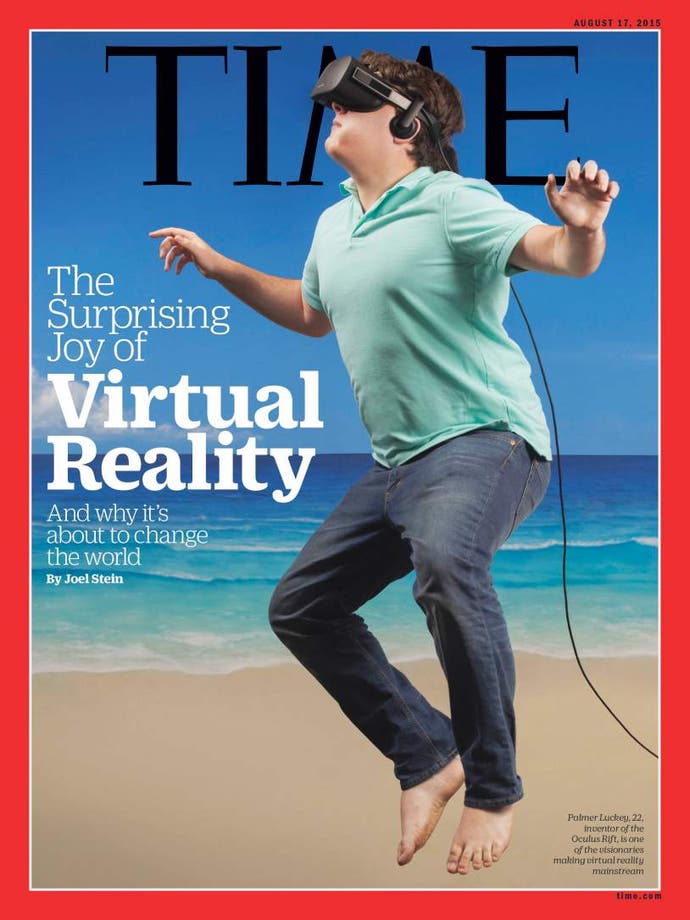
What Bethesda and all publishers do with their games is their prerogative, of course, but the debate that followed Bethesda's blog post crystalised in my mind the thought that we are now in a post-review media world. In fact we have been for some time. 2016, I hope, has shown Eurogamer more willing and able than ever to tell interesting stories about video games, before and after they come out. And yes, that means I'll keep writing about Street Fighter, even if none of you lot care about it.
November saw Sony release the PS4 Pro with little fanfare. The mid-generation console refresh came out with none of the razzmatazz of the PS4's 2013 release. There was no showy West End midnight opening, nor a crowing press release about sales numbers. But then Sony didn't seem to know what to do with it. The marketing was confused, the message muddled. What, exactly, was PS4 Pro for?
Digital Foundry has done a superb job all year round of explaining exactly what Sony's new console does - and doesn't - do. It turns out every game that supports it has an answer of its own. I was surprised to find some games ran slower on PS4 Pro than on base hardware, but then perhaps I shouldn't have. The whole thing felt a little rushed, and thus somewhat muted. What Microsoft must be thinking as it plots its own 4K console, Project Scorpio, due out in time for Christmas 2017.
2016 was bookended in remarkable fashion with the release of two games I thought would never see the light of day: Final Fantasy 15 and The Last Guardian. To my astonishment, both these games actually came out, on a disc, in a box, and were sold in shops. Development hell is an overused term, but these two games owned it. We're looking at nearly two decades of work on two games that should have come out five years ago. How the hell did they end up actually good? Blood, guts and soul-destroying crunch, I'd wager.
Both Final Fantasy 15 and The Last Guardian are flawed gems. "Final Fantasy 15 rediscovers the series' epic scale and love of intimate moments, but its scrappiness can sully the bigger picture," wrote Aoife in the Eurogamer review. "Does the successor to Ico and Shadow of the Colossus live up to its lineage?" Christian Donlan asked in our The Last Guardian review. "It does so much more."
Final Fantasy 15 and The Last Guardian rounded 2016 out nicely, two surprisingly positive points on a line of peaks and troughs. Out in the real world, 2016 has seen a series of nightmarish events, from soul-destroying celebrity deaths to political turmoil, from gut-wrenching war to shocking displays of violence, hatred and bigotry. But throughout it all, video games have provided a heart-warming antidote, a delightful distraction from a world gone mad.
For all the social media shitstorms and online furores and pointless petitions, the brilliance of video games shone defiantly, like a beacon of a better way. 2016 might not have been a groundbreaking year for games, nor will it go down as a seminal one, but it certainly was important. It seems right to end our year in review by pointing to the revelation that Tracer, the face of Overwatch, is queer. I can't think of a better fuck you to 2016 than that.
